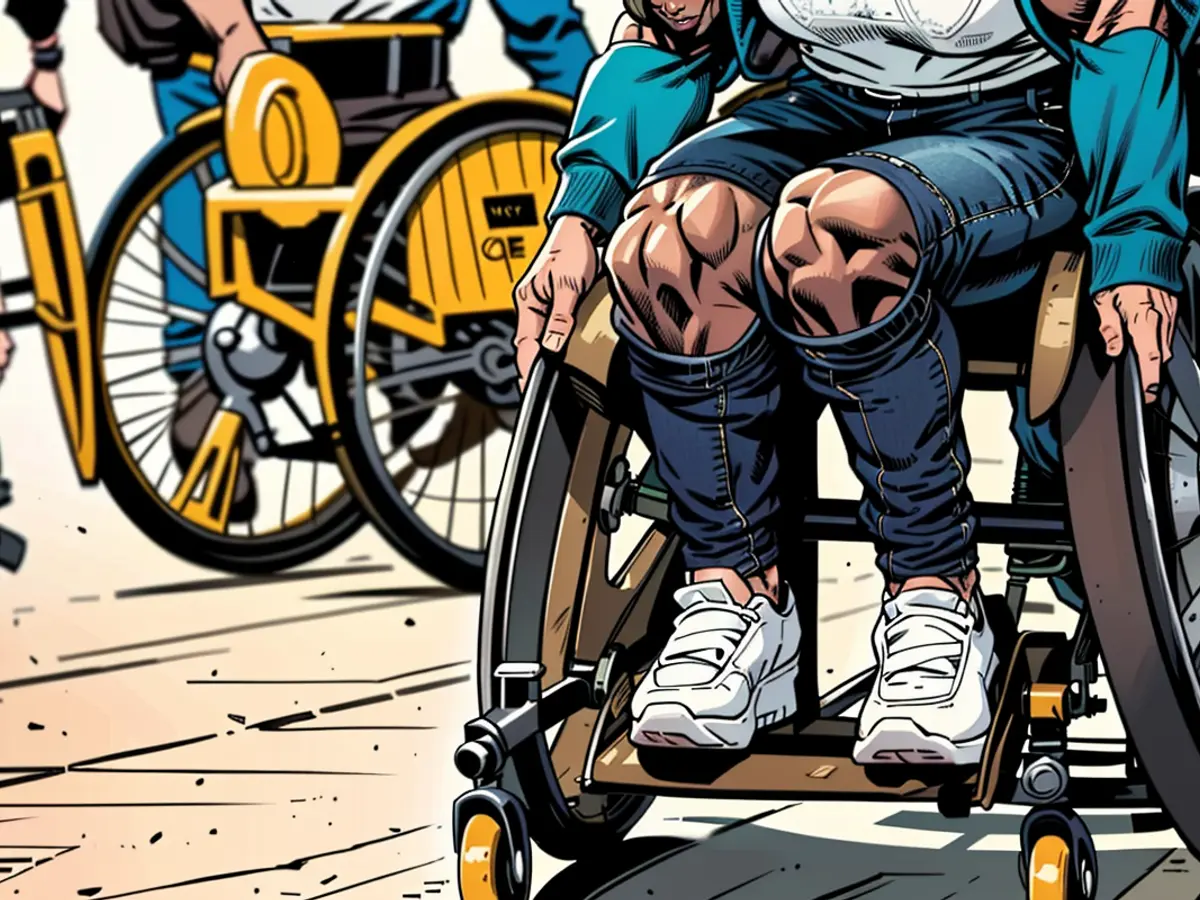- Young individuals with disabilities express higher levels of dissatisfaction compared to their non-disabled peers.
Individuals with disabilities often express lower levels of life satisfaction compared to their able-bodied counterparts. This observation is backed by the research study "Inclusion Barometer Youth" conducted by social organization Aktion Mensch. In this research, individuals aged 14 to 27, both with and without disabilities, were surveyed.
The findings suggest that only approximately half (53%) of those with disabilities are content with their lives in general, whereas this figure jumps to over three-quarters (78%) for those without disabilities. Discrimination is a more frequent experience among those with disabilities (85%), compared to their able-bodied peers (61%).
More prone to loneliness and less autonomous
The study also highlights a substantial disparity in social participation. Young people with disabilities report feeling lonely twice as often (26%) compared to others (13%). They also find it three times harder to make new friends. Additionally, they feel less autonomous and less free in selecting their academic path, such as choosing a school, vocational training, or further studies. With 41%, they also carry significantly more future anxiety than their able-bodied peers (16%).
Christina Marx, spokesperson for Aktion Mensch, emphasized, "The data clearly shows that there's still a long way to go before diversity is seen as normal or even advantageous for our society. That's why inclusion is crucial from the outset in all aspects of life. When equal coexistence is learned and practiced from the beginning, everyone benefits, and the cycle of discrimination doesn't even commence."
The impairment experienced by individuals with disabilities contributes to their higher likelihood of feeling lonely, with a report of being twice as often lonely compared to their non-disabled peers. Furthermore, the impairment can also lead to a perceived loss of autonomy, as they often find it harder to choose their academic path or make new friends, compared to their able-bodied counterparts.






